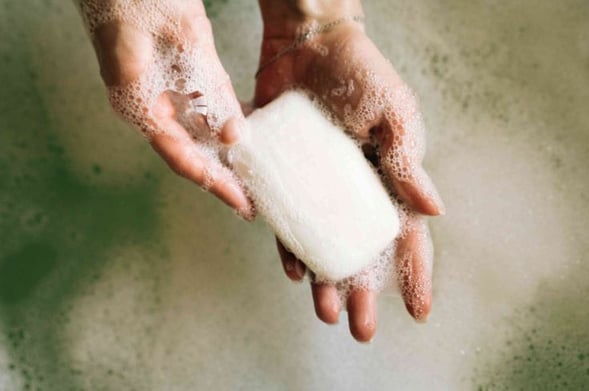The Benefits of Kojic Acid: A Miracle Ingredient for Skin Whitening
Kojic acid offers remarkable benefits for whitening skin, reducing dark spots, melasma, and acne. Learn how it works, safe usage tips, and skincare practices involving kojic acid here.
BODY HEALTHBENEFITS OF KOJIC ACIDSKINCARE TIPSHOW TO USE KOJIC ACIDKOJIC ACID ANTIFUNGAL PROPERTIES
11/16/20242 min read


Kojic acid can be found in bath soaps.
The capacity of kojic acid to lighten skin and erase dark spots, leaving the skin looking more radiant and bright, is its most well-known advantage. However, proper use of kojic acid is necessary to get the best outcomes.
Kojic acid, which comes from a variety of fungus, has long been used in skincare products including serums, creams, masks, face cleansers, and whitening soaps that are meant to brighten and whiten the skin.
But kojic acid's advantages go beyond only skin whitening. Additionally, this chemical may have antibacterial, antifungal, anti-inflammatory, and possibly pain-relieving properties.
How Kojic Acid Works and Its Benefits
The quantity of melanin that skin cells, or melanocytes, generate determines the color of the skin. Sun exposure, skincare products, and genetics all affect melanin levels. Tyrosine is an amino acid that is essential for the synthesis of melanin, and kojic acid functions by preventing its development. Kojic acid is therefore useful for whitening the skin and lowering the formation of pigment.
Here are some key benefits of kojic acid:
Skin Whitening
Kojic acid’s primary benefit is its brightening effect, particularly on areas with hyperpigmentation like acne scars, dark circles under the eyes, and uneven skin tone. Skincare products containing kojic acid are often combined with glycolic acid for enhanced results.
Treating Melasma
Melasma appears as dark patches typically found on the face or other sun-exposed areas. A combination of kojic acid with hydroquinone and tretinoin is known to effectively treat this condition.
Combating Acne
Kojic acid’s antibacterial properties help fight skin infections caused by bacteria such as Staphylococcus aureus, which is a common cause of acne.
Treating Fungal Infections
Thanks to its antifungal properties, kojic acid is an effective treatment for skin infections like ringworm and candidiasis.
Reducing Dark Spots
By inhibiting melanin production, kojic acid helps reduce dark spots or age spots, making the skin appear brighter and more youthful.
Safe Tips for Using Kojic Acid
To ensure the optimal benefits of kojic acid, consider these safety tips:
Use sunscreen and physical protection like hats when outdoors, as kojic acid makes the skin more sensitive to UV rays.
Avoid applying kojic acid to damaged or injured skin.
Check expiration dates and other ingredients in products to ensure their safety.
Opt for fragrance-free products to minimize the risk of irritation.
Important : Kojic acid products may cause contact dermatitis in some individuals, especially those with sensitive skin. If you experience symptoms such as itching, irritation, rash, swelling, or pain, discontinue use immediately and consult a doctor.
FAQs About Kojic Acid for Skin
What are the possible side effects of using kojic acid?
Kojic acid may cause contact dermatitis, particularly in individuals with sensitive skin. Symptoms include redness, itching, and irritation. Use with caution and consult a doctor if reactions occur.
What concentration of kojic acid is safe to use?
Products containing 1% kojic acid are generally considered safe for regular use. Always check the product label to confirm this concentration.
Is kojic acid effective for all skin types?
Kojic acid can work on all skin types, but those with sensitive skin should exercise caution. Consult a dermatologist to ensure the product suits your skin.
A potent active component for melasma, fungal and bacterial infections, hyperpigmentation, and skin brightness is kojic acid. Its application should be done with caution, nevertheless, especially for people with sensitive skin. Make sure the items you use have safe concentrations, and keep an eye on how your skin responds. When in doubt, get medical advice to determine the optimal skincare regimen.
📝 Read also : How to Safely Whiten Skin with Natural Ingredients
